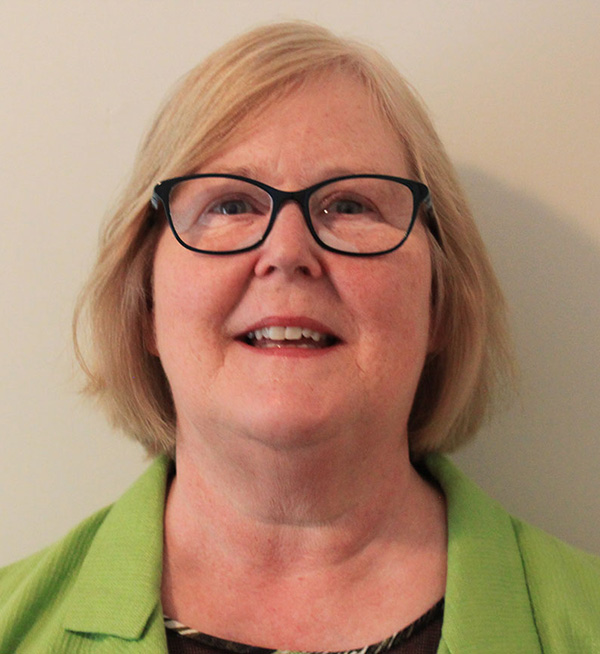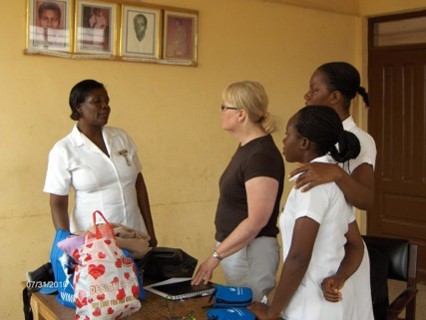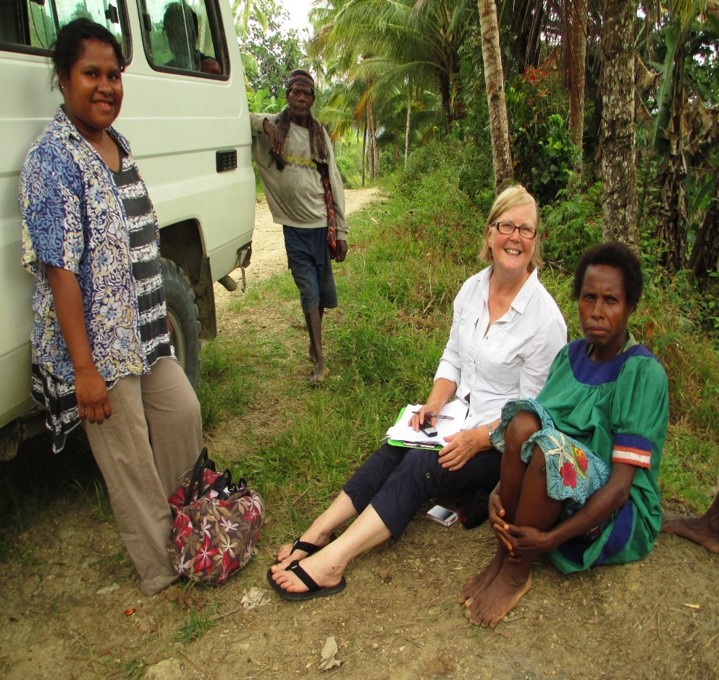Robin Toft Klar
DNSc, RN, Assistant Professor, Nursing • Meyers College of Nursing, New York University, New York, USAIn early 2000s, Massachusetts surveillance data demonstrated that the Worcester community had the highest infant mortality rate in the state. Upon further examination of death certificates, it was determined that all the infant’s mothers were African immigrants, primarily from Ghana, West Africa.
 Working with a colleague at the University of Massachusetts Medical School, Robin Toft Klar determined that a ‘road trip’ to Ghana was needed to understand better how women keep themselves well before, during, and after pregnancy. That ethnographic research has been published, along with data from a study of local Ghanaian immigrants’ perceptions of health care in Worcester.
Working with a colleague at the University of Massachusetts Medical School, Robin Toft Klar determined that a ‘road trip’ to Ghana was needed to understand better how women keep themselves well before, during, and after pregnancy. That ethnographic research has been published, along with data from a study of local Ghanaian immigrants’ perceptions of health care in Worcester.
Robin worked with a non-governmental organization in the village to conduct health screenings. Approximately 1,400 women attended the three screening clinics held over two years. Data from the screening clinics were presented to the District Medical Officer and the District Nurse.
 Robin was also involved in creating a Women’s Health Advisory Committee composed of a diverse group of women from the community. This group identified priority health issues, such as access to safe drinking water, which continues to be advocated today.
Robin was also involved in creating a Women’s Health Advisory Committee composed of a diverse group of women from the community. This group identified priority health issues, such as access to safe drinking water, which continues to be advocated today.
This work spurred Robin to complete her post-doctoral training in Global Health in Papua, New Guinea. There she examined the feasibility of implementing a WHO guideline on Lymphatic Filiarisis (LF) Morbidity Management. Her attachment to the Entomology Lab brought her to both seaside and mountainous communities with a high prevalence of LF. Access to these communities was extremely helpful in understanding the context of the environment in managing this neglected tropical disease.
Shortly after completion of her post-doctoral studies, Robin was hired by NYU Meyers College of Nursing, primarily to manage the Human Resources for their Health Rwanda project. Her recruitment and management of visiting faculty for this project allowed her to make a large shift in the countries from where visiting faculty were hired. In collaboration with the Dean at the University of Rwanda School of Nursing, from years 4-7 of the 7-year project, Robin hired up to 14 visiting faculty from African countries and India. This has made a dramatic impact on the uptake of concepts and content being taught by these faculty in the 8 newly developed master’s specialty nursing tracks. Robin and NYU were honored for this work two years ago with a Letter of Acknowledgement from the Ministry of Health and Chancellor of U. of Rwanda.
 Robin continues her work in promoting Global South to South networking and collaboration resulting in development of a similar hiring preference in the Resilient and Responsive Health Systems Initiative in Liberia. Here Robin leads the only U.S. nursing and midwifery academic institution’s team in working with the Minister of Health and the Liberia Board of Nursing and Midwifery on initiatives to reduce the maternal mortality rate in Liberia, the fifth highest in the world.
Robin continues her work in promoting Global South to South networking and collaboration resulting in development of a similar hiring preference in the Resilient and Responsive Health Systems Initiative in Liberia. Here Robin leads the only U.S. nursing and midwifery academic institution’s team in working with the Minister of Health and the Liberia Board of Nursing and Midwifery on initiatives to reduce the maternal mortality rate in Liberia, the fifth highest in the world.
Robin leads the Ghana Nurse Leaders project, working in collaboration with the Ghana Ministry of Health’s Division of Ghana Health Services and the University of Ghana College of Nursing and Midwifery to train the next cohort of nurse leaders from all 10 regions in Ghana in Phase II.
Locally, Robin is the Chair of the NGO Health Committee that is connected to the United Nations through the Department of Public Information and the Economic and Social Council where they bring programs related to health issues defined by the UN throughout the year to interested participants.
– Deb
In early 2000s, Massachusetts surveillance data demonstrated that the Worcester community had the highest infant mortality rate in the state. Upon further examination of death certificates, it was determined that all the infant’s mothers were African immigrants, primarily from Ghana, West Africa.

Working with a colleague at the University of Massachusetts Medical School, Robin Toft Klar determined that a ‘road trip’ to Ghana was needed to understand better how women keep themselves well before, during, and after pregnancy. That ethnographic research has been published, along with data from a study of local Ghanaian immigrants’ perceptions of health care in Worcester.
Robin worked with a non-governmental organization in the village to conduct health screenings. Approximately 1,400 women attended the three screening clinics held over two years. Data from the screening clinics were presented to the District Medical Officer and the District Nurse.

Robin was also involved in creating a Women’s Health Advisory Committee composed of a diverse group of women from the community. This group identified priority health issues, such as access to safe drinking water, which continues to be advocated today.
This work spurred Robin to complete her post-doctoral training in Global Health in Papua, New Guinea. There she examined the feasibility of implementing a WHO guideline on Lymphatic Filiarisis (LF) Morbidity Management. Her attachment to the Entomology Lab brought her to both seaside and mountainous communities with a high prevalence of LF. Access to these communities was extremely helpful in understanding the context of the environment in managing this neglected tropical disease.
Shortly after completion of her post-doctoral studies, Robin was hired by NYU Meyers College of Nursing, primarily to manage the Human Resources for their Health Rwanda project. Her recruitment and management of visiting faculty for this project allowed her to make a large shift in the countries from where visiting faculty were hired. In collaboration with the Dean at the University of Rwanda School of Nursing, from years 4-7 of the 7-year project, Robin hired up to 14 visiting faculty from African countries and India. This has made a dramatic impact on the uptake of concepts and content being taught by these faculty in the 8 newly developed master’s specialty nursing tracks. Robin and NYU were honored for this work two years ago with a Letter of Acknowledgement from the Ministry of Health and Chancellor of U. of Rwanda.

Robin continues her work in promoting Global South to South networking and collaboration resulting in development of a similar hiring preference in the Resilient and Responsive Health Systems Initiative in Liberia. Here Robin leads the only U.S. nursing and midwifery academic institution’s team in working with the Minister of Health and the Liberia Board of Nursing and Midwifery on initiatives to reduce the maternal mortality rate in Liberia, the fifth highest in the world.
Robin leads the Ghana Nurse Leaders project, working in collaboration with the Ghana Ministry of Health’s Division of Ghana Health Services and the University of Ghana College of Nursing and Midwifery to train the next cohort of nurse leaders from all 10 regions in Ghana in Phase II.
Locally, Robin is the Chair of the NGO Health Committee that is connected to the United Nations through the Department of Public Information and the Economic and Social Council where they bring programs related to health issues defined by the UN throughout the year to interested participants.
– Deb
